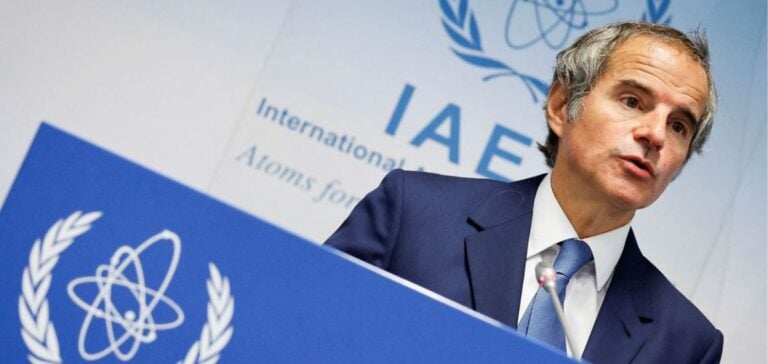The director of the IAEA (International Atomic Energy Agency), Rafael Grossi, recently expressed his desire to renew ties with North Korea. In an interview with the Russian newspaper Izvestia, Mr. Grossi stressed the importance of this cooperation in ensuring the safety of the country’s nuclear facilities. IAEA experts had regularly visited North Korea since 1992, but were expelled in April 2009. At the same time, Pyongyang withdrew from international negotiations on its nuclear program, followed by a second nuclear test. Mr Grossi insists that it’s crucial not to repeat the mistakes of the past, and to look to the future with a fresh perspective.
Nuclear safety issues in North Korea
North Korea has an ambitious nuclear program, including fuel production, uranium processing and nuclear reactor management. Rafael Grossi made it clear that his concern is not limited to nuclear weapons, but extends to all the country’s nuclear facilities, which are the only ones in the world not to be monitored. This lack of oversight raises questions about compliance with minimum safety standards, not only for the IAEA, but also for neighboring countries, including Russia and China. According to Grossi, it’s imperative to address these practical concerns while navigating the region’s complex political context.
Comparison with the Iranian nuclear issue
Rafael Grossi also warned against repeating the mistakes made with North Korea in the context of Iran’s nuclear program. He recalled that efforts and negotiations with North Korea have not borne fruit, despite decades of attempts. This lesson must be applied to the handling of nuclear affairs with Iran, to avoid a similar scenario of failure. In recent years, North Korea has increased its international isolation, severing all ties with its neighbor South Korea and increasing the number of weapons tests banned by UN resolutions. However, the country has moved closer to Russia and China, adding a further geopolitical dimension to the region’s nuclear security challenges.
In short, Rafael Grossi calls for a renewed, pragmatic approach to the North Korean nuclear situation. He stresses the need to resume contacts to ensure adequate supervision and security of nuclear facilities, while learning from past failures to avoid repeating the same mistakes with other nuclear programs, notably Iran’s.






















